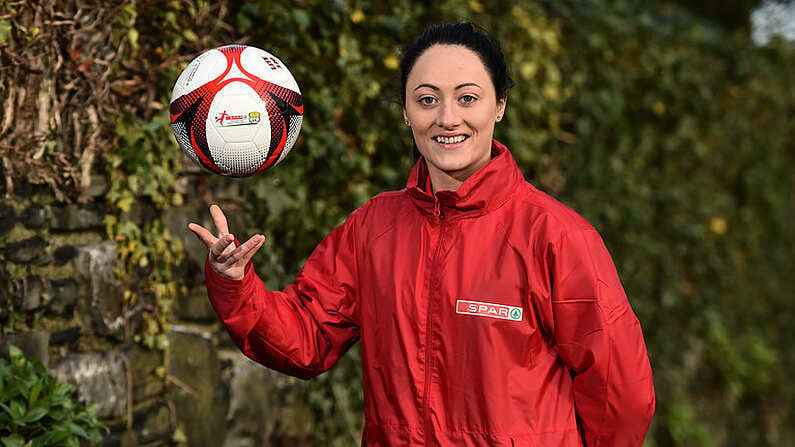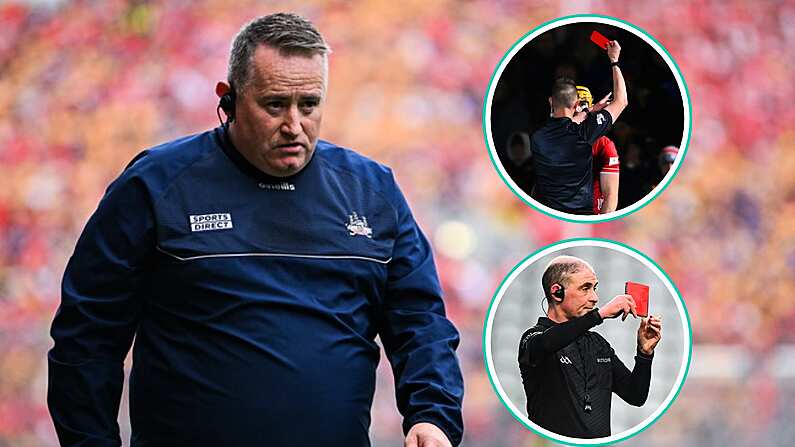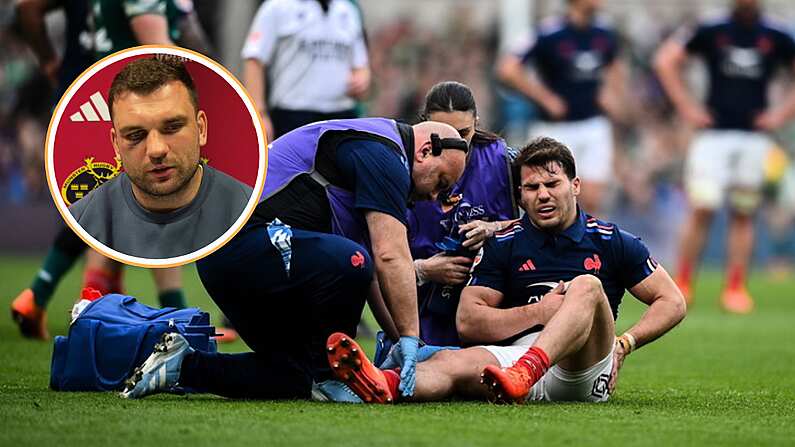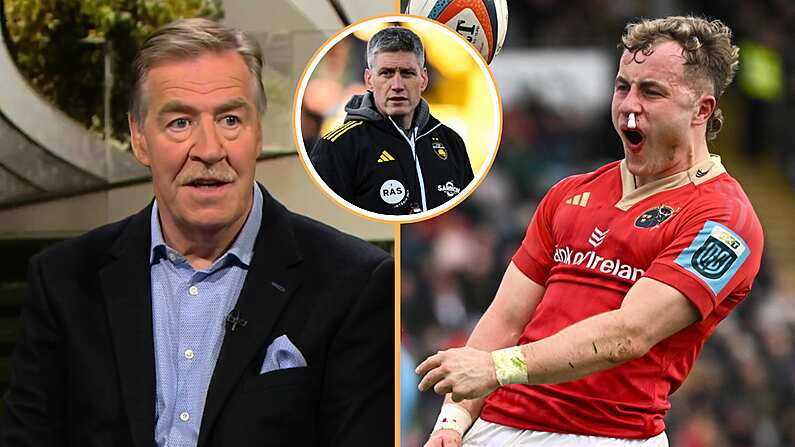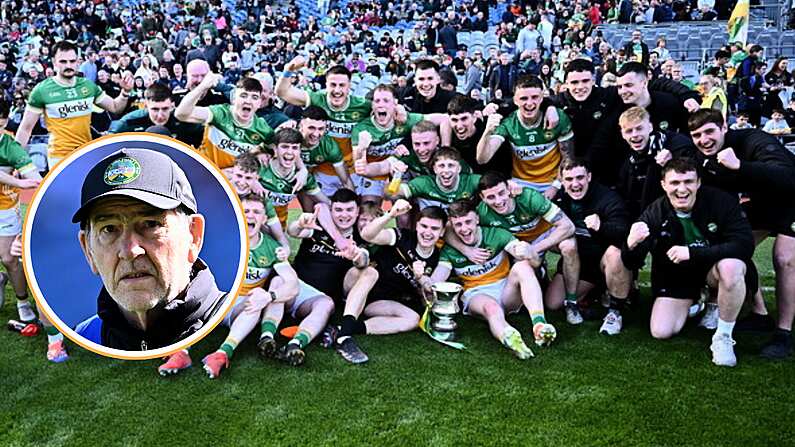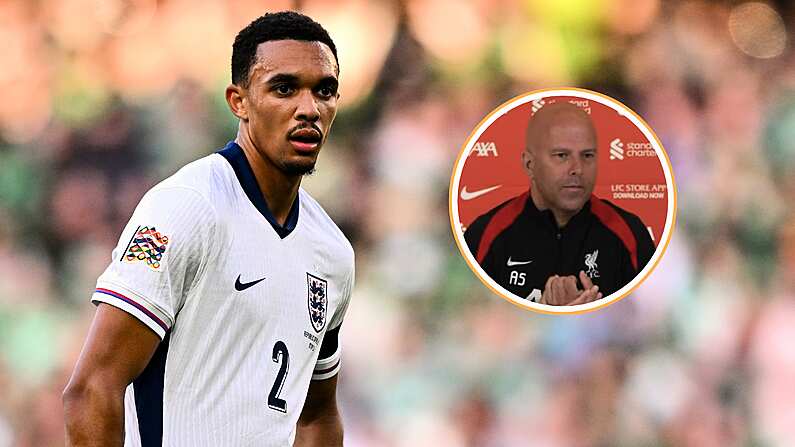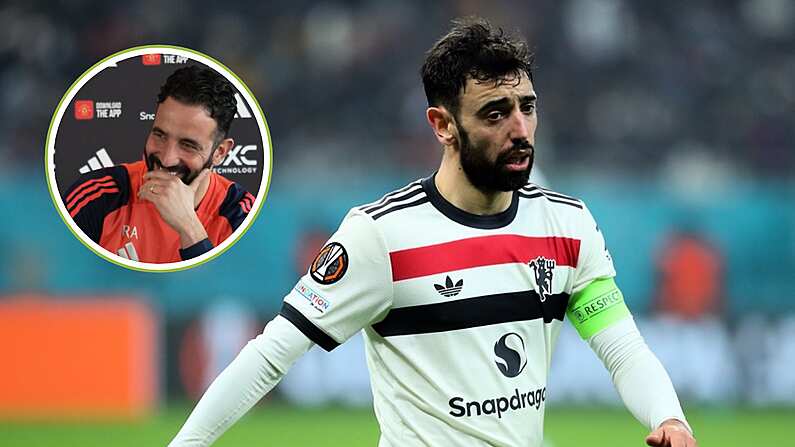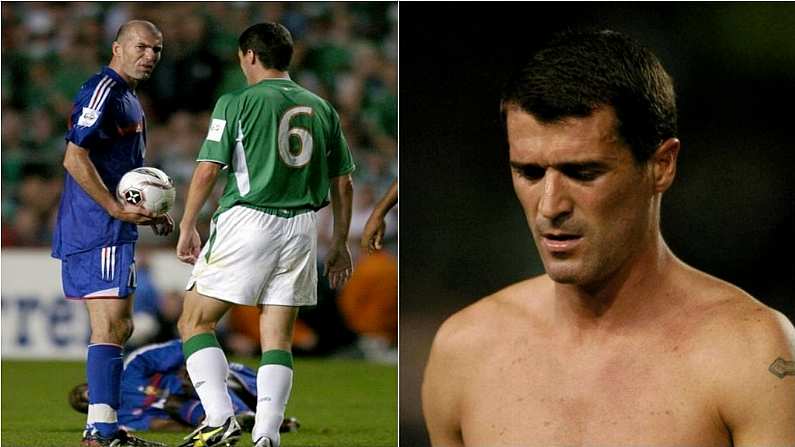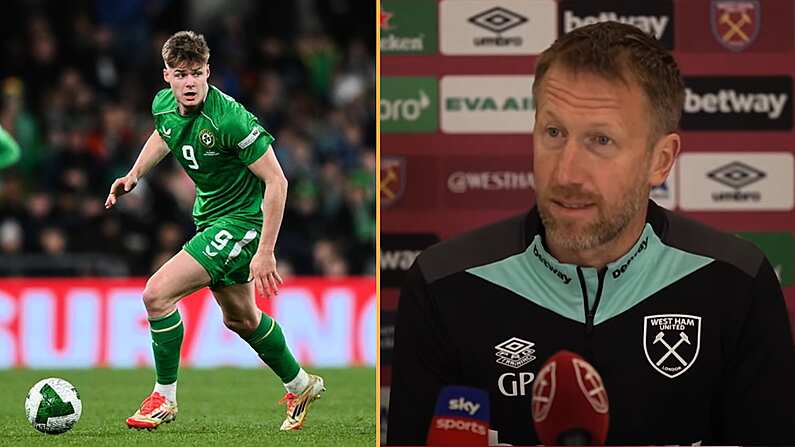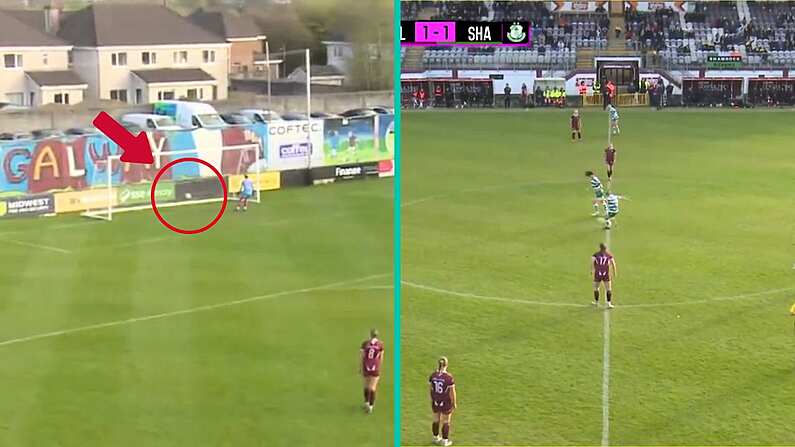In April they stood.
The Irish Women's National team snaffled a nation's attention with a press conference at Liberty Hall detailing their shoddy treatment at the hands of the FAI. Having outlined a list of demands, which included a desire for more home-based training sessions, a fixed match fee, gym membership for the full squad and tracksuits they could keep rather than hand back to share, they eventually got what they asked for from the Association.
Today, they march.
The World Cup qualifying campaign has thus far yielded seven points from nine, and it less a case of two points dropped than one point improbably and historically gained. That point was burgled from the home of the reigning European Champions, which brought to an abrupt end their eleven-match winning run. Further to that, they kept a strikeforce in which the reigning world player of the year dovetails with a 21-year-old striker with 49 international goals to her name already.
Oh, and Ireland were missing Megan Campbell, Stephanie Roche, Aine O'Gorman, Claire Walsh, Ruesha Littlejohn, and Claire O'Riordan.
So what effect has the feud - and its resolution - with the FAI had on this qualifying campaign? "It definitely had an impact upon the group", Megan Campell tells Balls. "To know that everyone was together and behind each other, and that we all had the same goal. That definitely drove us".
Did it add any extra pressure?
There always is pressure. You’re asking for certain things, and when you get them, you need to impress and give back to those who have given to you. What we got was what we deserved. Then we just needed to perform and get those results, and thankfully, so far they’ve been going our way.
Campbell was among the players to miss out on the draw with Holland, coming weeks after the agony of a cruciate ligament injury that tainted an otherwise outstanding 2017. Campbell spent time studying in Florida State as a way of hanging a safety net before Man City made it moot: they came calling and Campbell ended the season with experience of the Champions League semi-finals and an FA Cup winners' medal.
Having undergone surgery five weeks ago, Campbell is targeting a return for Ireland's final qualifier against Northern Ireland at the end of August. Looking on at her teammates make history, however, has been challenging.
Yeah, it’s definitely frustrating as a player when you’re watching on. You’d rather be on the pitch than in the stands but I’ve been in the stands more than I’ve been on the pitch recently. I was out with my ankle for eight months and I came back and played at Wembley, which I didn’t expect to be involved in at all if I look back on it now. They started me and put their trust and faith in me.
It is difficult mentally and physically -- sometimes it’s harder mentally than it is physically but I know I’ll get back again soon.
By the time she does return, Ireland's qualification task will be clear-cut. Currently, Ireland and Holland are level on seven points in second place, two points behind leaders Norway on whom both nations have a game in hand. The group winners qualify automatically for the World Cup, with second chances relatively scant: just four of the seven group runners-up will qualify for the playoffs.
Ireland's attitude under Colin Bell is, as you'd expect, to take one game at a time. That said, there is a level of belief among the squad that easily radiates from Campbell. This, she insists, has been incubated by the manager.
I sat down in his first meeting with the full team and his first words were, ‘I want to be in France next year. And I’m not going for a holiday. I want to be there, on the sideline as a coach, watching you play’.
For me, that said it all. I was done for words, and the fact that he said that it gave us belief before stepping on the grass to play for him.
Campbell frequently references the positivity among the camp, which stems partly from Bell's attitude, but also the unity of the squad. Although necessity partly dictates so, Bell has been unafraid to infuse his squad with youth. The side that drew in Holland, for example, featured a then-16-year-old Tyler Toland.
I didn’t know where the kid came from, but when she first came into the camp I was looking over saying, ‘Where have you found this girl’?
But there’s loads of other talent in the squad. Leanne [Kiernan], Roma [McLaughlin], Amber [Barrett], who are all getting their opportunity to play and hopefully succeed within it.
I know Tyler played the full 90 against Holland. For someone who was 16 at the time, to play against the European champions in their home ground, before a sellout crowd, that will only stand to them in the future.
I did text her beforehand to tell her to enjoy it, just take these things in no matter what the result is. Hopefully come next year, she will be experiencing it more.
I think the belief is that we can qualify, that it doesn’t matter if you’re 16 or 25: you’ve got a great importance to the team. We know we can qualify if you do everything right on and off the pitch, and if we are together as teammates. I think the gel we have now as a squad is second to none.
Since Colin has come in, there is a different persona about the team. We’re just enjoying it more.
With the blooding of youngsters high on Martin O'Neill's job description in 2018, he could do worse than taking a couple of notes from Bell.
The Irish team are currently in between a couple of friendlies against Portugal - the first ended in a 1-0 defeat - ahead of the real business in April: a double-header with Slovakia and Holland in Dublin.
If we have to go through the playoffs to get there, that will be a pressure-cooker game but it’s nothing we haven’t dealt with before. We are always the underdogs in games, and I think that stands to us a lot of the time.
When people don’t expect us to achieve, we always prove them wrong.
Megan Campbell was speaking at the launch of the SPAR5s. Register by February 9th at www.fai.ie/primary5

